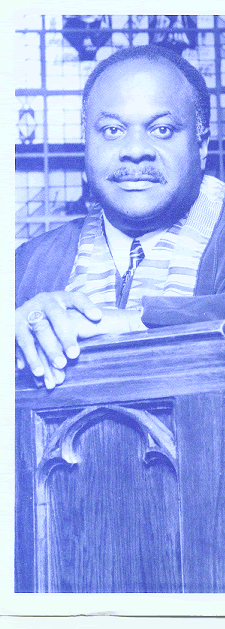
In 1999, nearly a century after the aforementioned address, the National Baptist Convention, USA, Inc. stood at a similar crossroad. Rev. Henry A. Lyons, its president, sat miles away in a federal prison while the organization held its annual session in Tampa, Florida. Lyons had been convicted of fraud and embezzlement, accused of having stolen millions of dollars from the convention to finance his expensive taste, which included a 7.5 carat diamond ring for his mistress. Among the many candidates seeking to succeed Lyons and take the convention in a new direction was W. Franklyn Richardson. A graduate of Yale Divinity School and pastor of Grace Baptist Church in Mount Vernon, New York, Richardson was also a veteran denominational bureaucrat who believed he had both the experience and the vision to lead the convention back to the center stage of African American social, political and religious life. As his campaign platform attests, Richardson echoed Morris' ideals a century before. He affirmed that while the National Baptist Convention was a religious institution, it had an obligation to address whatever ailed black America, including AIDS, health care, economic development, educational reform and the prison industrial complex. He also thought that such a comprehensive plan could only be achieved with an organizational structure that was more analogous to contemporary church and business standards. Richardson's defeat, in favor of William J. Shaw, was in some ways a repudiation of any effort to move in the direction that Morris imagined and tighten and centralize the National Baptist Convention's structure. The rejection of Richardson's program indicates a resistance among the members of the NBC to turning it into something other than a loose confederation of independent, local congregations and state organizations.
Quinton Hosford Dixie is an assistant professor of Religious Studies at Indiana University, Bloomington. He is finishing a book on the National Baptist Convention, entitled, The Church with the Soul of a Nation: Race, Religion and the Quest for Unity.
Bibliography:
